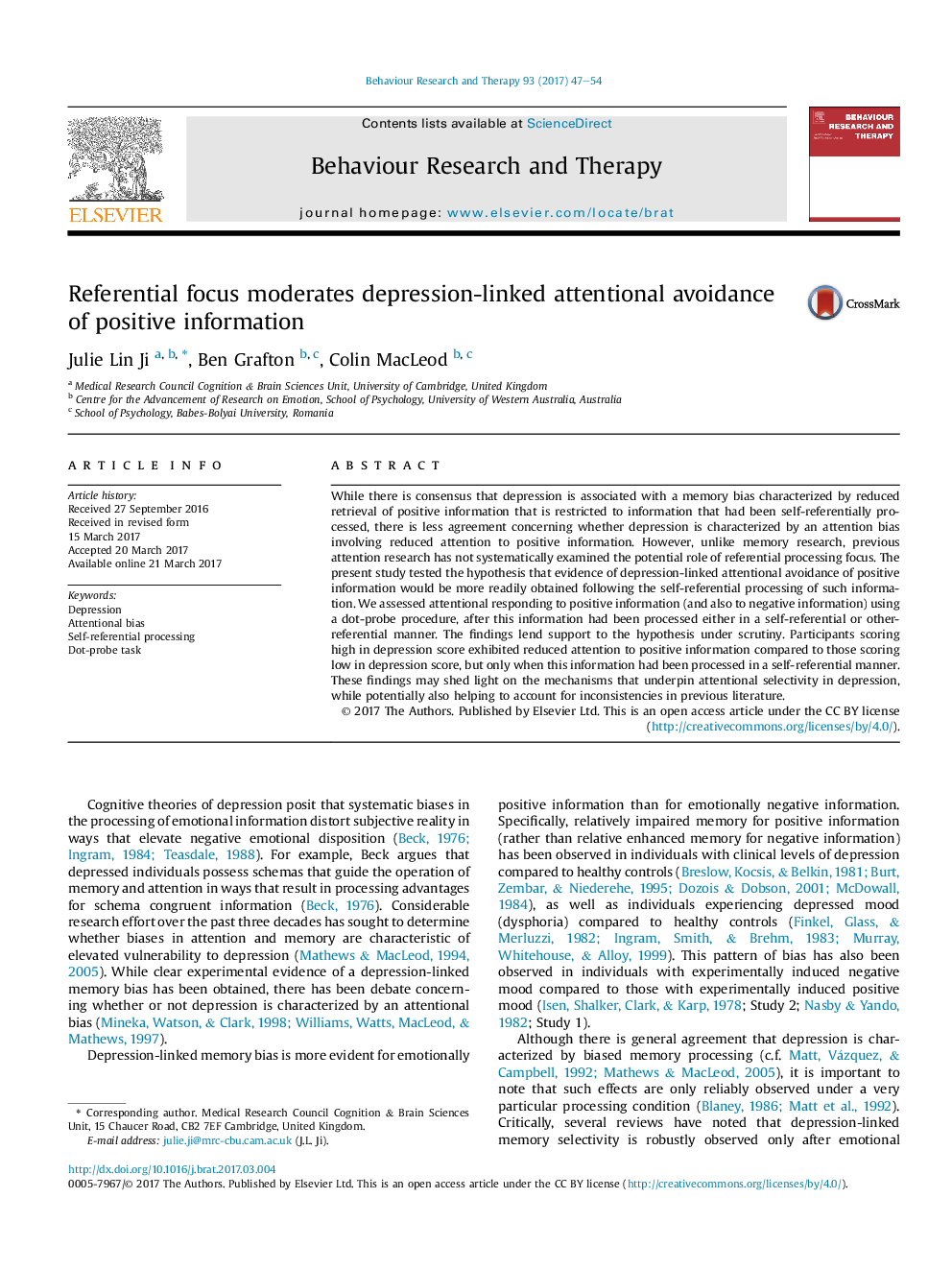| Article ID | Journal | Published Year | Pages | File Type |
|---|---|---|---|---|
| 5038191 | Behaviour Research and Therapy | 2017 | 8 Pages |
â¢First systematic investigation of the role of referential processing focus in moderating depression-linked attentional bias.â¢Reduced attention to self-referential positive information was exhibited by high relative to low depression individuals.â¢No evidence of a depression-linked reduction in attention to other-referential positive information was found.â¢Findings shed light on the mechanisms that underpin attentional selectivity in depression.â¢Findings also help to account for inconsistencies in previous literature.
While there is consensus that depression is associated with a memory bias characterized by reduced retrieval of positive information that is restricted to information that had been self-referentially processed, there is less agreement concerning whether depression is characterized by an attention bias involving reduced attention to positive information. However, unlike memory research, previous attention research has not systematically examined the potential role of referential processing focus. The present study tested the hypothesis that evidence of depression-linked attentional avoidance of positive information would be more readily obtained following the self-referential processing of such information. We assessed attentional responding to positive information (and also to negative information) using a dot-probe procedure, after this information had been processed either in a self-referential or other-referential manner. The findings lend support to the hypothesis under scrutiny. Participants scoring high in depression score exhibited reduced attention to positive information compared to those scoring low in depression score, but only when this information had been processed in a self-referential manner. These findings may shed light on the mechanisms that underpin attentional selectivity in depression, while potentially also helping to account for inconsistencies in previous literature.
